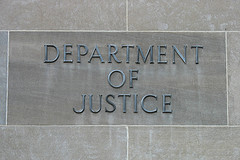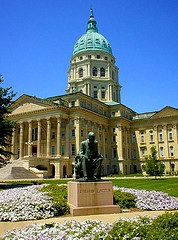Browse by Subject
- Defamation (588)
- Copyright (511)
- Legal Threat (507)
- Free Speech (411)
- Blogs (315)
- Section 230 (309)
- Anonymity (301)
- Social Media (297)
- Citizen Journalism (286)
- Newsgathering (286)
- Fair Use (280)
- Criminal (279)
- Journalism (266)
- Access to Gov't Information (242)
- Third-Party Content (239)
- Censorship (230)
- Twitter (229)
- Privacy (213)
- CMLP (211)
- Trademark (189)
- DMCA (162)
- Shield Laws (149)
- Access to Courts (148)
- Prior Restraints (120)
- FOIA (107)
- SLAPP (105)
- Cyberbullying (89)
- Elections and Politics (88)
- Legal Guide (84)
- Recording Others (83)
- User Comments or Submissions (82)
- Terms and Conditions (80)
- Publication of Private Facts (80)
- Right of Publicity (79)
- Subpoenas (78)
- Advertising (77)
- Consumer Ratings and Reviews (59)
- Intrusion (54)
- False Light (54)
- Student Speech (54)
- Gripe Sites (51)
- Congress (49)
- Hot News Misappropriation (47)
- Resources and Tools (45)
- Open Meetings (43)
- Children (42)
- Linking (41)
- Computer Fraud and Abuse Act (41)
- Obscenity (36)
- Access to Places (35)
- Business Torts (33)
- Identity (33)
- Aggregation (33)
- Trade Secrets (30)
- Trade Libel (25)
- Personal Jurisdiction (24)
- Licensing (24)
- Business Formation (23)
- Taxes (22)
- Sanctions (21)
- Employee Blogs (20)
- Domain Names (19)
- Real Estate (17)
- Retractions and Corrections (15)
- Credentials (15)
- DMLP (13)
- Cyberstalking (13)
- Reviews (11)
- Insurance (11)
- Hate Speech (11)
- Misappropriation (11)
- Establishment Clause (10)
- Government Speech (9)
- Website Design (7)
- Statute of Limitations (4)
- Science (3)
- Patent (2)
Recent Blog Posts
-
10 years 7 months ago
-
10 years 7 months ago
-
10 years 8 months ago
-
10 years 8 months ago
-
10 years 9 months ago
-
10 years 9 months ago
-
10 years 9 months ago
-
10 years 10 months ago
We are looking for contributing authors with expertise in media law, intellectual property, First Amendment, and other related fields to join us as guest bloggers. If you are interested, please contact us for more details.


 On February 21, 2014, the U.S. Department of Justice released its
On February 21, 2014, the U.S. Department of Justice released its  As has been
As has been  From the credit-where-credit's-due department (with the requisite hat-tip to
From the credit-where-credit's-due department (with the requisite hat-tip to  A filmmaker's fight against an oil company seeking his raw documentary footage has spurred a national debate on the
A filmmaker's fight against an oil company seeking his raw documentary footage has spurred a national debate on the  A mid-level appellate court in Illinois ruled on Tuesday that the publisher of a local newspaper must reveal the identity of a pseudonymous Internet commenter. In
A mid-level appellate court in Illinois ruled on Tuesday that the publisher of a local newspaper must reveal the identity of a pseudonymous Internet commenter. In  In an
In an  In recent years, the American public seems to have fallen under the impression that providers and regulators of airline travel have extra-legal powers. These fictional powers typically mean that passengers can be
In recent years, the American public seems to have fallen under the impression that providers and regulators of airline travel have extra-legal powers. These fictional powers typically mean that passengers can be 